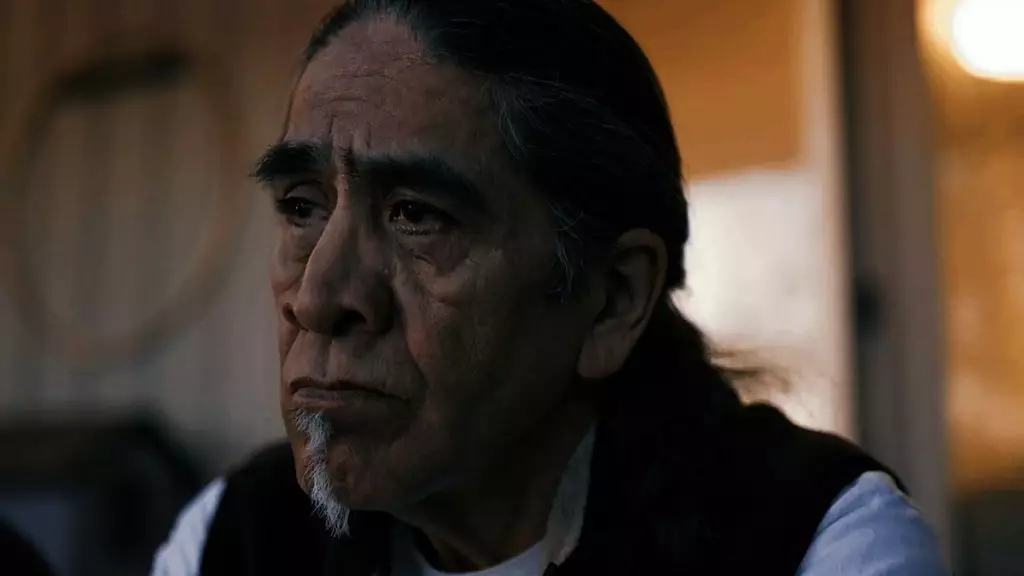In the thought-provoking documentary “Sugarcane,” filmmakers Julian Brave NoiseCat and Emily Kassie delve into the profound impact of the residential school system on the Williams Lake First Nations community. Through their unique backgrounds in activism and journalism, as well as NoiseCat’s personal connection to the story, they construct a compelling and heart-wrenching narrative that urges audiences to confront questions about morality, justice, and the enduring intergenerational trauma.
Saint Joseph Mission residential school, one of 139 similar institutions in Williams Lake, British Columbia, exemplifies the dark legacy of the residential school system. These schools were primarily established to assimilate Indigenous youth into Euro-Canadian culture, resulting in forced family separation, physical and sexual abuse, and the destruction of First Nation culture and language. Students endured abhorrent living conditions, menial labor, and constant abuse, leaving them with enduring emotional and physical scars.
The ruins of Saint Joseph Mission serve as a haunting reminder of the divisive colonial policy that stripped youth of their childhoods. The echoes of abuse and cultural erasure at this particular school reverberate throughout Canada’s broader residential school program, which inflicted generational trauma on numerous Indigenous communities. However, it is important to note that Canada was not the only country to enforce such systems; the United States, too, forcibly took Indigenous children from reservations to government-run boarding schools.
In the late 19th to mid-20th centuries, American Indian boarding schools like Pennsylvania’s Carlisle Indian School aimed to assimilate native youth into Eurocentric society. Similar to Saint Joseph Mission, students endured harsh discipline, forced labor, cultural suppression, and physical abuse. Alarmingly, there were 408 such schools in the United States, underscoring the vast scope of this traumatic chapter in history.
Julian Brave NoiseCat, with his personal connection to the issue as his father attended one of these American schools, offers an intimate lens through which to understand the collective harm caused by forced family separation and rampant abuse of children. The documentary demonstrates how violence inflicted on entire populations elicits diverse responses, ranging from calls for justice to self-preservation through secrecy and denial. It highlights individuals like Charlene Belleau, who channels her residential school experience into activism, as well as NoiseCat’s father, who seeks personal healing.
As “Sugarcane” explores the deeply rooted scars borne by the Williams Lake First Nation, it captures the resilience of a community that has persisted despite the concerted efforts to erase its existence. The documentary offers a powerful testament to the strength and determination of these communities as they continue to seek reparations for the harms inflicted by residential schools.
Through their adept visual storytelling, NoiseCat and Kassie convey a profound sense of solidarity with the Williams Lake First Nation. The film stands witness to the ongoing investigations into the missing children, shedding light on a grief that has long been shrouded in shadows. However, the filmmakers acknowledge the delicate balance between commemoration and protecting survivors from retraumatization, recognizing the need for a sensitive and community-centered approach to reconciliation.
As the documentary concludes, the filmmakers express hope that a much-needed resolution will come swiftly. By bringing attention to the enduring trauma caused by residential schools, they shine a spotlight on the urgent need for reparations and justice. Through empathy and the deep-rooted determination of the affected communities, “Sugarcane” serves as a testament to the indomitable spirit of those who have persevered in the face of immense adversity.
Julian Brave NoiseCat and Emily Kassie’s documentary “Sugarcane” uncovers the far-reaching impact of the residential school system, particularly on the Williams Lake First Nations community. This powerful film invites audiences to confront uncomfortable truths about the dark legacy of forced family separation, abuse, and cultural erasure. By highlighting the resilience of the survivors and their descendants, the filmmakers remind us of the importance of recognizing our shared humanity and supporting those who have endured historical injustices. Through its deeply empathetic approach, “Sugarcane” becomes a rallying cry for justice and a powerful testimony to the strength of Indigenous communities as they navigate a path toward healing and reconciliation.

